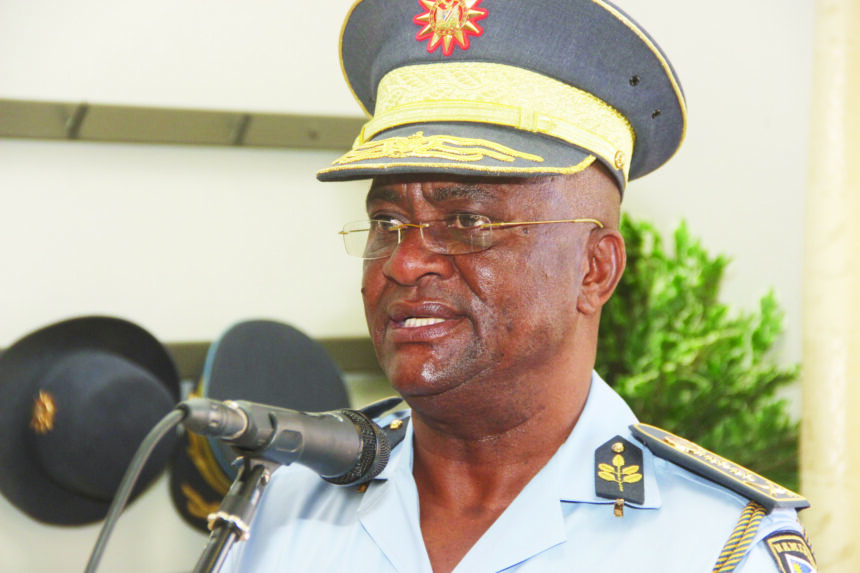Conflict resolution and management skills are very important tools to succeed in the world of politics and nation building, as well as to bring about peace and stability in society.
One of the main causes of conflict in risk management is the divergence of expectations and interests among stakeholders.
These differences can lead to disagreements, disputes and misunderstandings.
This eventually can cause a major breakdown in social order if not properly tackled.
The perennial demands for genocide reparations by the Ovaherero and Nama communities posed to the German government will never die a natural death.
This remains a real risk to peace, harmony and stability in our country.
Acts of genocide, atrocities and colonial injustices have a strong predictor of political violence.
Thus, genocide issue will continue to haunt our society for generations to come if not amicably resolved now.
As Africa states rally around a unified stance on reparations, the African Union (AU) has placed historical justice at the forefront of its agenda.
From financial compensation to the restitution of cultural heritage, calls for redress are gaining momentum, challenging former colonial powers to reckon with their past.
Hence, Germany must reckon with their atrocities and the genocide history of 1904-1908 when the notorious General Lothar von Trotha issued an extermination order of the Ovaherero and Nama indigenous people, respectively.
This resulted in the decimation of approximately 80 000 Ovaherero and 10 000 Nama people.
The settlement
Sixteen years after Namibia’s independence, on 26 September 2006, Paramount Chief Kuaima Riruako tabled a motion in the National Assembly, which was unanimously adopted as a Resolution by the august Legislative House.
The Resolution outlined four principles that formed the basis for any negotiations and final settlement with the German government on the genocide of victim communities.
a. That what happened to the Nama and Ovaherero during 1904-1908 was a brutal act of genocide sanctioned by the German government of the day.
b. That the Nama and Ovaherero people are entitled to demand reparations from the German government.
c. That the Namibian government should be an interested party in any discussions between its nationals and the German government on the issue of reparations.
d. That dialogue be convened between – on one hand the Namibian government and representatives of the victim communities. On the other hand, the German government to attempt and resolve the matter amicably.
Flaws
In 2015, negotiations started in earnest between Germany and the Namibian government. Eventually, on 28 April 2021, following five years of intense negotiations, Germany formally recognised the genocide and announced that it will pay Namibia US$1.1 billion in reconstruction and development aid.
In early December 2024, the German and Namibian governments concluded negotiations over a Joint Declaration (JD) and announced that the Cabinets of the two countries had reached a landmark decision “related to the signing of the JD on the genocide, apology and reparations between the Namibian and German governments”.
However, the Ovaherero and Nama traditional leaders rejected the deal.
They called for Germany to make collective reparations to descendants of victims and return the stolen land.
Sadly, when the two governments initialled the JD in May 2021, intense bargaining was undertaken behind closed doors over an addendum, as the Namibian government was seeking to seal the controversial pact, surprisingly after realising numerous shortcomings in the JD.
Unfortunately, a bitter dissension was created when the main agencies of the descendants of the Ovaherero and Nama communities, affected by the genocide and atrocities.
These agencies are the rightful representatives of the descendants’ voices in the negotiations with the German government and are historically entitled to such reparations, were not directly represented at such reparations as per the 2006 National Assembly motion.
However, other pertinent issues, such as the lost ancestral land, the loss of livestock and other possessions, the destruction of culture, the economic disenfranchisement, the rights of affected communities in diaspora, and an atonement for intergenerational effects of genocide were not at all addressed in the JD.
A pittance offer to fund 1.1 billion euros worth of projects, intended to be disbursed into existing aid programmes over 30 years, was also not gladly received.
The victims’ community leaders dismissed this offer as a “public relations coup by Germany and an act of betrayal by the Namibian government”.
In October 2022, the Namibian vice president then, His Excellency Nangolo Mbumba, tried to convince the two affected communities to accept the negotiated results, but his efforts were futile.
The victim communities remained adamant, sticking to their call for justice: “anything about us, without us, is against us”.
In summary, the JD does not correct any of the fundamental flaws discussed above.
A tripartite negotiation framework constituting the third leg of the triangle in direct talks with the German government was not heeded at all, and the negotiations remained a matter between the two governments.
As such, rightful representatives of the two affected communities did not feel that they were adequately represented by the Namibian government.
The worst shortcoming is reflected in that the negotiations violated the United Nations Declaration on the Rights of Indigenous Peoples, signed by both states, Namibia and Germany.
Thus, victim communities that continue to suffer pain, trauma and disenfranchisement are asking questions why they are being treated so wrongly.
Conflict resolution is the most suitable process through which the two governments with full participation of victim communities can find a cordial solution to a problem.
Otherwise, the two governments are taking a foolish risk – a lingering risk is fatal.
Alternatively, the Namibian government must correct their fatal errors by revoking the JD, convene a consultative dialogue with the victim communities as full participants, re-engage the German government and thereby restart the negotiation process.
*Maj. Gen. (RTD) J. B Tjivikua is a descendant of victims of 1904-1908 genocide.


